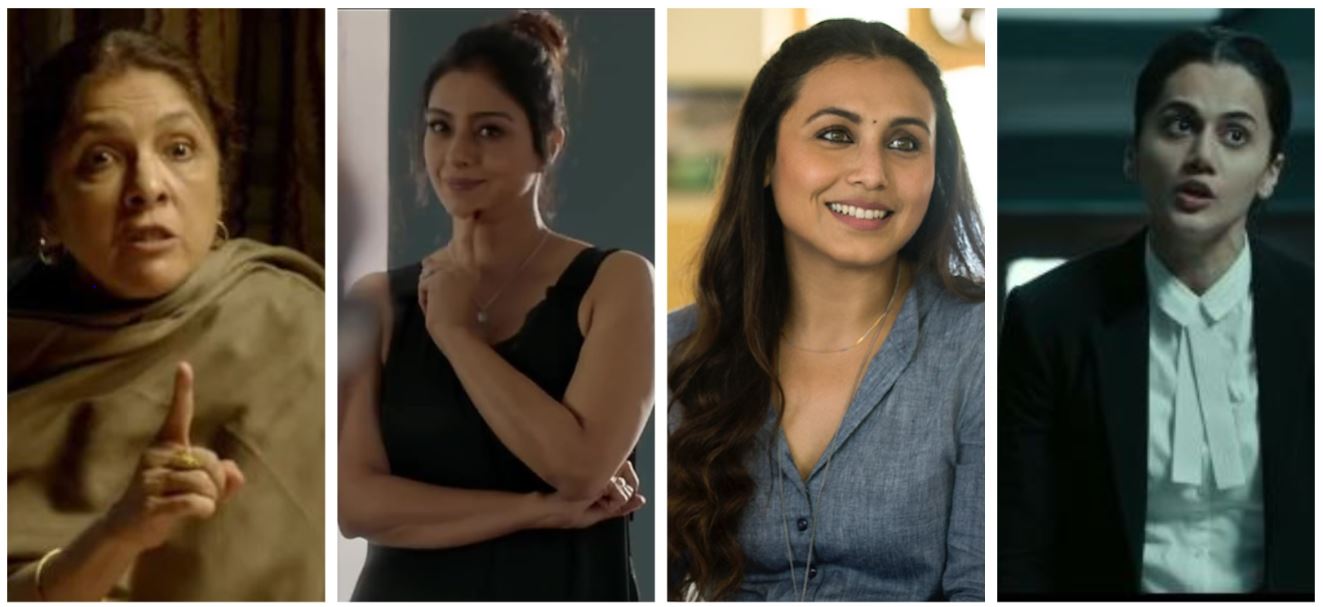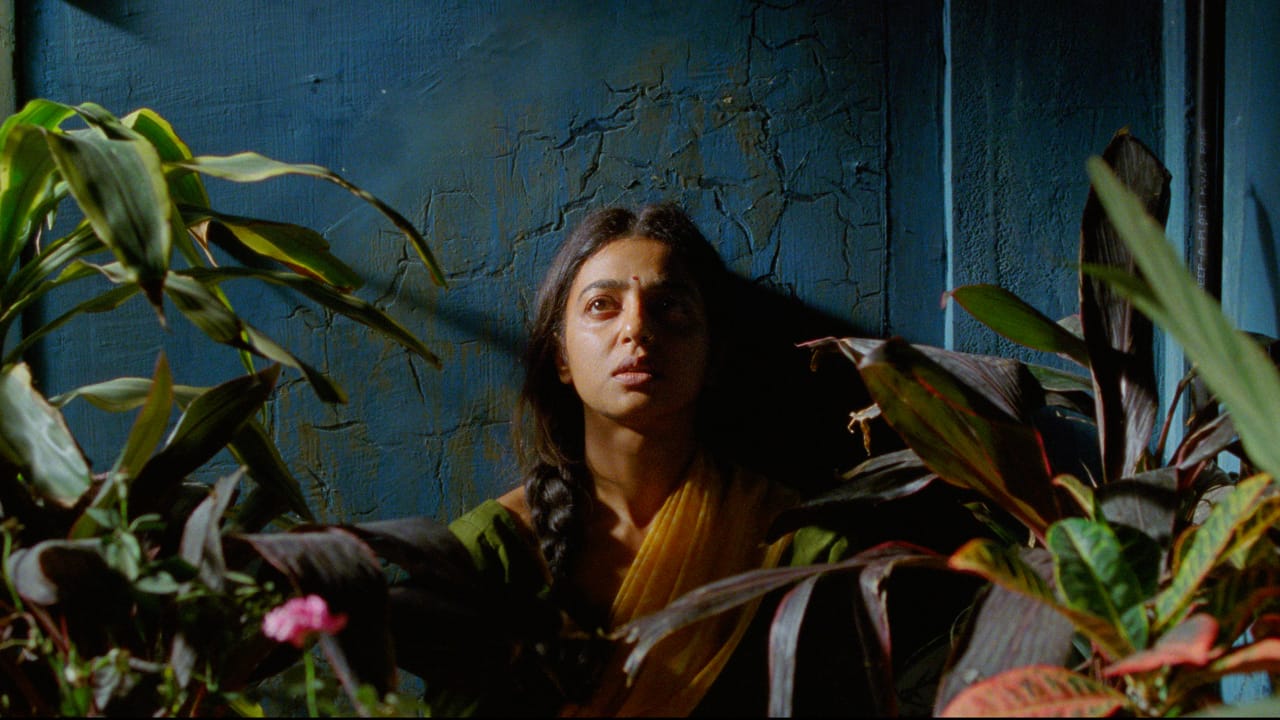There is a new kind of cinema that is emerging. Commercial films are willing to take up themes and voices that have been relegated to the alternate for far too long. Much like in the real world, where women are speaking up, more emphatically than ever before, new strong ties of solidarity are being formed on the back of what we’ve all been through together, cinema is waking up to the voices that have been submissive for far too long – the voices of empowered women, again and again.
Women directors have changed paradigms, broken through spaces almost always reserved for men. What is incredibly heartening though, is the depiction of women, and men, in commercial cinema that is moving away from gender binaries fed to us for so long. Women in our films have a voice, an ambition, and most critically, a choice. 2018 has been a landmark year with more and more of such films emerging, normalising the idea of equality. 2017 saw a formidable film – from Tumhari Sulu, where we had a body positive, ambitious women, doing all she can to realise her ambition, all the way to a spate of releases through this year – from Raazi, to Hichki, to Manto, to Badhaai Ho, to Pataakha, and all the way to Andhadhun. How we see women, their age, their desires, their thoughts has been altered. This is a critical, landmark shift.
The feminists in each of these films are real. They practice the personal political. This isn’t a fabricated, male’s-eye-view-of-women approach, neither are any of the films or protagonists, shouting out their feminism. It exists as normally as their lives and therein lies the progression in how we write the characters, showcase them and film them.
Sahmat is a feminist. And a patriot. But doesn’t have to exhibit it with slogans, a traditionally masculine demeanor, or that of a rebel in any way.
With Raazi, Sahmat (Alia Bhatt), is in every way feminine, almost bordering on delicate in her physicality. But her grit, the sense of purpose, and the choice that she makes, both of continuing on a path indicated by her father, and the choice to return, and emphatic. The normalcy with which Meghna Gulzar has dealt with her steely ambition, wrapping it in folds of softness, makes her believable, and that much more real. She is a feminist. And a patriot. But doesn’t have to exhibit it with slogans, a traditionally masculine demeanor, or that of a rebel in any way.
Feminism must be understood. Assertions needn’t always be rebellious- much like several films of the past have us believe. Neither does a woman being convinced of her power make her like a man (Mardaani), or a devi who descends to set everything right in the world (Kahaani). She is human, in every sense of the word, who recognises her own individuality, persona, choices and desires, and acts on them.
Raazi also broke down ideas of toxic masculinity. Despite being set in the context of an army household, there was enough emphasis on Iqbal (Vicky Kaushal) and his tender love, the idea of space that he shared with Sahmat. These are the kind of conversations we need. And I can’t help but speak of Masaan, where after years we had a man come face to face with his grief, and express his pain with the most heartfelt cry in years.
In Hichki, had Naina (Rani Mukherjee) take on her defect with elan, and negotiate through issues both in the personal and professional.In a landmark scene where a daughter confronts her father of his refusal to recognise her dreams, how she persists with them, and how she calls him out for his own fallacy of giving up on a family, is a conversation we haven’t seen enough. As a single, young woman, it was a delight to not find labored ideas of partnership or marriage being even remotely touched in the film- on the other hand insisted ideas of ideal partnerships, respect, sister-brother bonds, make that film an important watch.
As for Manto, Nandita Das’s astute, assured handling of a writer’s life, juxtaposed with his creations is what great cinematic journeys are made of. But it was Safia’s stoic, solid presence that changed the film for me. The strength with which she stays, and the equal strength with which she volunteers to leave a man she loves, indicate her strength in the idea of a choice.
Badhaai Ho’s deft humour, is so deeply ingrained in an informed and aware idea of gender dynamics. Critical questions like the idea of desire after years of marriage, at an age where we expect to pedestalise our parents just because that’s what they are, the need to look beyond that identity, questioning toxic masculinity are beautiful tenets of the film.
Badhaai Ho takes all these on with complete abandon, and therein lies its strength. The most important scene for me is the one where both parents-to-be are having a private, real conversation – where the husband, Jeetendra (played magnificently by Gajraj Rao) leaves the choice of having the child or not, on his partner, Priyamvada (Neena Kaushik). Even if he is intimidated with the idea of having the child, he respects the decision she takes, because he recognises well, that it is hers to take. The film pokes fun at toxic masculinity where in another remarkable scene, Jeetendra is seen growing a moustache and enjoying the attention he gets from his peers, and is promptly checked by a formidable Priyamvada.
These are films that have strong ideas of gender deeply coded in them, normalise the idea of equality
The mother-son relationship (and the impeccable Surekha Sikri), and the unquestioning authority in the home being dadi’s, are beautiful moments sprinkled throughout a very well though through screenplay. And yet, just as critically, the person who finds the idea of sex for the ageing parents normal and justified, is a self-assured Renee (Sanya Malhotra) who calls out both her boyfriend, Nakul (Ayushmaan Khurana)and her mother (Sheeba Chaddha) for their discomfort with it.
Age is losing its relevance in films. When Tabu, Rani Mukherjee, Neena Gupta are gracing the screen in pivotal roles, the result is evident. While these are long overdue testimonies to their underutilised talent, they also mark a shift in roles and scripts being written. These films would not have existed had they not had these characters or these formidable actors. Maybe ageism is finally being questioned?
Whatever is said about Tabu will not be enough. She is luminous, in incredible control and proving her mettle again and again. Watch her in Andhadhun to know what presence, nonchalance and voice can do. In a tight script that milks her talent through, she is unforgiving and unforgettable. Our favorite Lady Macbeth, Miss Havisham, and Gertrude. Andhadhun, does not bother itself with any binaries. The film is very evidently Tabu’s and Ayushmaan’s in equal measure. Age, gender have nothing to do with it. And that itself is progress for our cinema. That doesn’t labour itself with ideas of age or chemistry and is finally moving away from actors having women their age play their mothers, and romance women less than half their age.
Mulk, another critical film, finally has a working woman at the center. The lawyer who is a driven woman, making her choices apparent in her personal and political. She is articulate, strong, and independent, both in the choices of family, body, politics, and life.
Pataakha, Vishal Bharadwaj’s cracker of a film had two young women in the lead. Their volatile relationships, their ambitions and their fearless run to them exhibit the conversation not being limited to ideas of urban women alone. Them refusing to take unwanted advances, them embracing their sexuality and ability to choose partners, them calling out men for their unacceptable behavior, are all unwavering parts of a very powerful narrative. Their physicality is far from accepted and expected ideas of femininity. They fight with strength and anger, they have very clear ideas of who they want to be, and they chase those ideas, in each way possible.
Each of these films are more powerful and critical than Pink or English Vinglish that came before them. In Pink, we were still straddled with a male protagonist fighting for justice for women, and a parallel narrative that had little relevance. With English Vinglish, we saw a woman by choice resort to her previous comfort. What English Vinglish gave us though, was the agency of choice, and spoke to us about the unwavering need of respect in a marriage.
2018 has been a year that we will remember. For every regressive Padmaavat that insisted on reducing women to nothing more than vaginas, glorifying their act of Jauhar, and for every deeply sexist Sanju, we have had films that are sharp, astute, and refusing to look at women as props.
Also read: 15 Feminist Films We Loved In 2018
These are films that have strong ideas of gender deeply coded in them, normalise the idea of equality and say it in a way that is both memorable and palatable for a larger audience. And now that Thugs of Hindostan has buckled, we will realise that women are not meant to be objectified, that scripts win, and it is now time to portray women as real, strong, articulate people, before all else.
About the author(s)
Saumya Baijal, is a writer in both English and Hindi. Her stories, poems and articles have been published on Jankipul.com, India Cultural Forum, The Silhouette Magazine, Drunk Monkeys, Writer's Asylum, among several others. Her writings reflect her personal & political thought processes, questions existing ideas of set definitions. She trains in Kathak, co-runs her street theatre group, Aatish, and is an Advertising Professional with over 10 years of experience working across the largest worldwide advertising networks.





nice blog thank u for for this information